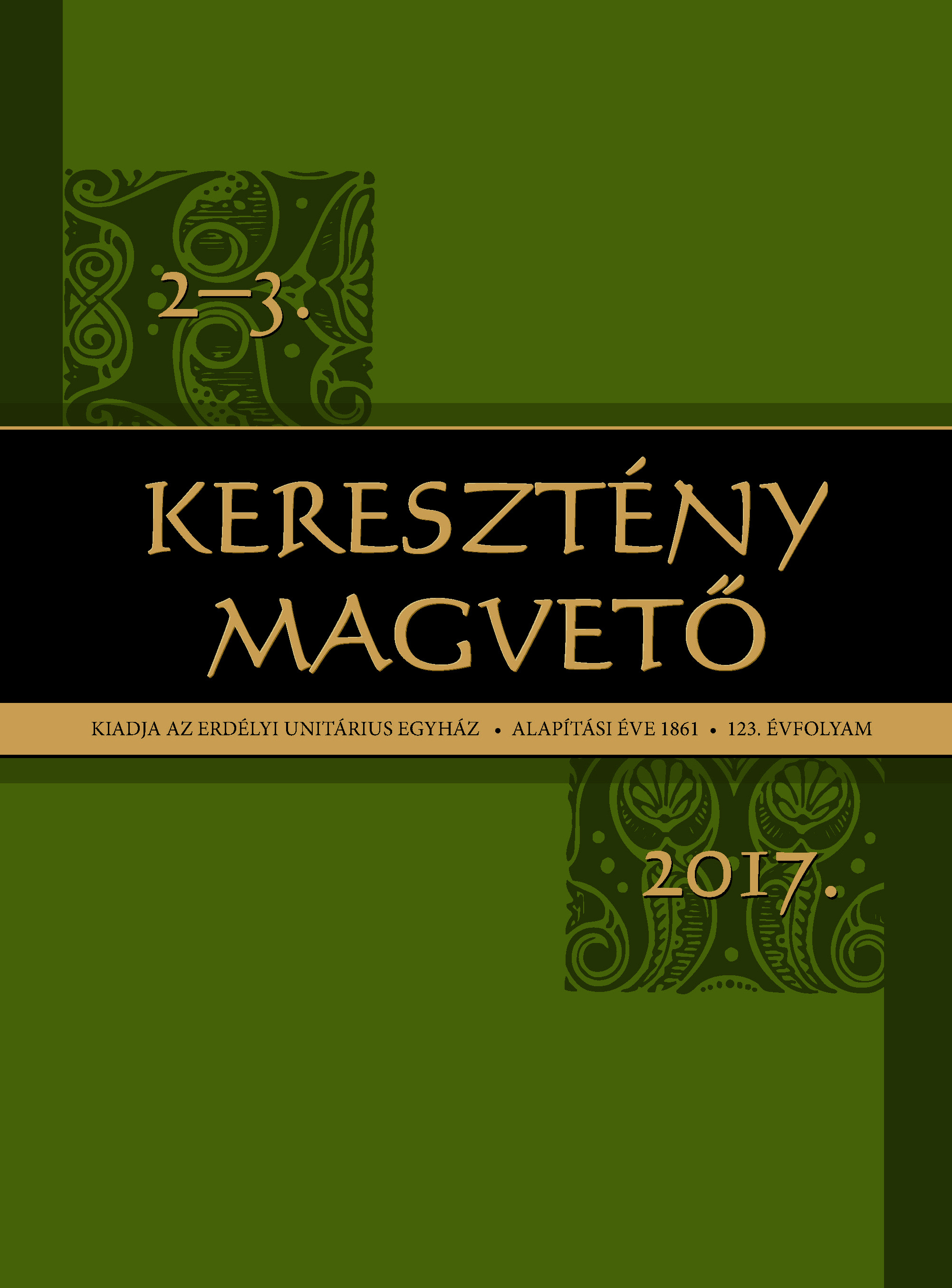Prédikáció és Apokalipszis: Karádi Pál és a protestáns hagyomány
Sermon and Apocalypse: Pál Karádi and the Protestant Tradition
Author(s): Tamás TúriSubject(s): Christian Theology and Religion, History, Theology and Religion
Published by: Erdélyi Unitárius Egyház
Keywords: apocalypse; exegesis; Calvinism; Commentary on the Apocalypse; cyclical historical approach; Partium; Revelations; sermon; Zürich Beda Venerabilis (672/673–735); Bullinger Heinrich (1504–1575);
Summary/Abstract: This article explores the Unitarian superintendent/bishop of the Partium, Pál Karádi’s (1523–1590) exegetical method, his historical approach and the eschatological roles of the ministers and preaching in his Commentary on the Apocalypse (1580). Karádi mainly focused on the sensus litteralis (literal meaning) but he also considered a spiritual meaning, based on an empirical resemblance to the sensus litteralis, combined with consideration of the actual historical context. On this ’historical allegory’ Karádi constructed a cyclicalhistorical approach, which widens the horizon of its application, making possible connections to other protestant interpretations.Regarding pastoral theological thoughts, the role of the ministers and the preaching about the last days, there are many similarities between Karádi’s commentary and that of the Calvinist bishop, Péter Melius Juhász (1532–1572) in the interpretation of Revelations 10–12.Additionally, Karádi probably used Heinrich Bullinger’s (1504–1575) Ahundred sermons upon the Apocalypse… and the meaning of the Apocalypse, Paul’s eschatology, the characteristics of the sermon as genre, and pastoral theology in his own writings, resulting in similarities with the reformed tradition in Zürich.Karádi’s and Melius’ common explanation about the pregnant woman, the son and the dragon in Revelations 12 is similar to the interpretation pattern of Antoine du Pinet (1510–1584), who combined the works of Sebastian Meyer (1465–1545), François Lambert (1486/87–1530), Beda Venerabilis (672/673– 735), Joachim von Fiore (1135–1202) and Victorinus of Pettau (?–303/304).
Journal: KERESZTÉNY MAGVETŐ
- Issue Year: 123/2017
- Issue No: 2-3
- Page Range: 412-428
- Page Count: 17
- Language: Hungarian

